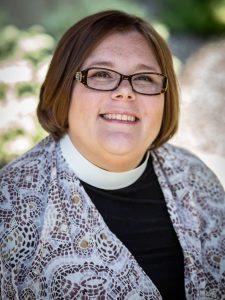 By Rev. Norma Malfatti
By Rev. Norma Malfatti
One of the joys I have in my call as our synod’s Director for Evangelical Mission is spending time with our new start and strategic ministry communities and their leaders. These communities also happen to include our synod’s ethnic specific, culturally specific and multi-cultural congregations. Last week in a renewed practice from pre-pandemic times, pastors of these communities gathered in person for mutual support and relationship building.
As part of the conversation, we talked about how the synod can be a stronger supporter of their communities. Pr. Melissa Gonzalez, the mission developer of Tapestry, a bilingual community that worships at Oak Grove, Richfield, shared some profound thoughts about partnership with these ministries using the story of Jesus visiting the home of Mary and Martha in Luke 10.
Often when congregations or individuals reach out to develop relationships with new start and strategic ministries, they approach the relationship like Martha approached hospitality, tending to tasks: cleaning, cooking, or serving in some other physically active way. This kind of help is important; showing up with hands and hearts ready to serve is a faithful approach to building relationships.
However, as Jesus told Martha, it is not the only approach and may not even be the needed one. Like Mary, sometimes we just need to sit down and listen, have a conversation with the people and communities we wish to build relationships with.
“They’re looking for some more Marys to be in their midst.”
Last summer, members of the synod’s Racial Equity Lens Task Force and Mission Table sat down and listened to members and leaders from our 13 new start and strategic ministries. They listened to hopes and dreams, frustrations and losses, as we seek to not only build better relationships in our synod but also to learn how systemic racism and othering impacts these ethnic specific, culturally specific and multicultural communities of faith. This was holy and hard work, not only for the interview teams but also for our communities as they relived and shared their experiences.
One of the early learnings from the interviews was that our ethnic and culturally specific ministries feel disconnected and isolated from others in the synod. I was reminded of this as Pr. Melissa shared that Tapestry, and our developing and strategic ministries more broadly, were looking for some more Marys to be in their midst. To simply show up, to worship and share in fellowship with them.
FOR THOSE OF US WHO ARE WHITE, it can be intimidating entering a space that is not centered on dominant culture, including language and worship practices. I will admit that when I attend worship at our congregations that do not worship in English, most of the time I have no idea what is being said, though there is usually someone nearby who interprets for me. And when there isn’t, I meditate on the Scripture that was read or silently pray for the community I’m with, for deeper understanding of, and relationship with, one another. I’ve learned that I do not need to know every word that is said to have meaningful experiences with my siblings in Christ; I just need to be present and listen.
When Jesus responded to Martha’s plea to make her sister get up and work, he told her that she was, “worried and distracted by many things.” Jesus’s words are not unlike those of Pr. Jane Buckley-Farlee, pastor of Trinity Lutheran Congregation in the Cedar-Riverside neighborhood, who says that when we show up in places that are new to us, especially when visiting people of a different language or culture, we are going to feel out of our element and may even feel incompetent. And that’s okay.
“It can be intimidating entering a space that is not centered on dominant culture.”
Our worries over having the right words, knowing exactly what’s going to happen or even if we’ll be able to communicate with everyone can distract us from what’s most important – showing up with an open heart and open ears, much the same way Mary did when she sat down with Jesus. Mary was sitting in a space typically reserved for men and I bet it wasn’t just Martha that wanted her to be in the kitchen preparing the food. Mary showed courage, along with her desire to learn, by sitting with Jesus and the other men that were in her home.
Perhaps the invitation to be like Mary is one you or your congregation have already been pondering. I encourage you to respond with yes! If you’re looking for a place to start, feel free to reach out, I’d be happy to share with you about our ministries. In the meantime, you can learn more about them on the synod website on the developing congregations and culturally and ethnic specific ministries pages. Like Mary and Martha, I can promise that your lives will be richer for spending time together with them and Jesus.

